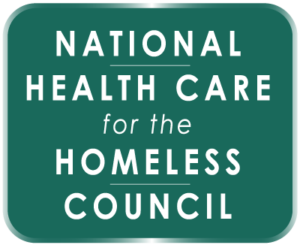Bobby Watts is the Director of the NIMRC Initiative and CEO of the National Health Care for the Homeless Council.
Interest in Medical Respite (aka Recuperative Care) has increased dramatically over the past few years, and interest accelerated during the past months of the COVID-19 pandemic. In response to this increased demand for Medical Respite Care, two months ago, the National Health Care for the Homeless Council established a new special initiative, the National Institute for Medical Respite Care (NIMRC). Our goals are ambitious: to increase the number of Medical Respite programs, increase the quality of their services, and increase the sustainability of Medical Respite programs.
There are several reasons why we at the Council believe that we are the right ones to promote Medical Respite and pursue such heady goals: Our Community, Our Expertise, and Our Values.
Our Community
The best way to describe the 200 organizational members and the thousands of individual members that comprise the Council is as a supportive, caring, and sharing community. Health Care for the Homeless programs and Medical Respite programs straddle the worlds of health care and homeless services. In both of those worlds they are atypical, and the pioneers of the Health Care for the Homeless movement realized that they needed to support and learn from each other because they weren’t getting it from the health care system. That same spirit of mutual support which led to the Council’s founding almost 30 years ago is still evident in all we do. We freely share our successes and our failures to help other members of the community improve.
Our Expertise
Medical Respite began more than 30 years ago, with the first programs established by members of the Council. Since then, the Respite Care Providers Network, which is part of the Council, has become the preeminent repository of knowledge about clinical care, operations, and financing in Medical Respite programs. All that we do is powered by those on the front lines – those providing or receiving Medical Respite care. This expertise in providing care for people experiencing homelessness has led to the Council being sought for guidance by other parts of the health care system: hospitals, managed care organizations, public health departments, universities, and medical schools. We have also been increasingly involved with other parts of the homeless response system: shelters, rescue missions, supportive housing, and Continua of Care. Continuing to be a bridge between health care and housing programs, we are extremely pleased to have been able to provide input to both the CDC and HUD during this pandemic.
Our Values
The values of the Council are expressed in our mission statement: Grounded in human rights and social justice, the NHCHC mission is to build an equitable, high-quality health care system through training, research, and advocacy in the movement to end homelessness.
Our movement springs from, and has as its foundation in, a commitment to advancing health care and housing as human rights. We value the dignity and equality of each individual and strive to really listen to those with the lived expertise of homelessness when designing, delivering, and evaluating our services. Along with high-quality services, equity is also a foundational value for all our work. In an inequitable society, this is both difficult and essential to do if we are to make lasting change toward ending homelessness.
Three years ago, the Council began concerted efforts to promote race equity in health care and housing services. Though we have a long way to go, that intentional work has prepared us to help Health Care for the Homeless programs and Medical Respite programs build practices, processes, and structures in their organizations that will promote equity for their patients and staff.
The Council will pour not only all of our learning and expertise from the past 30 years into NIMRC and those whom NIMRC assists, but will also pour the enduring values of human rights, social justice, and race equity to create and support high-quality, sustainable, and equitable Medical Respite Care.

